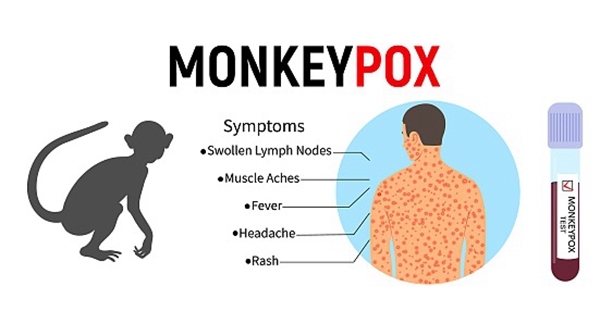What is monkeypox? Should you be worried?
The World Health Organization declared monkeypox — which it now refers to as mpox — a public health emergency of international concern (PHEIC) on Aug 14, activating its highest level of global alert for the virus for the second time in two years.
According to the WHO, mpox has been endemic in West and Central Africa for decades, but the Democratic Republic of Congo has become the epicenter of a dangerous new strain that emerged last year.
As of Aug 9, Africa has reported 17,431 mpox cases and over 500 deaths across 13 states — with over 95 percent of cases concentrated in the DR Congo — already exceeding last year's total cases, according to the Africa Centers for Disease Control and Prevention.
The WHO has declared a PHEIC seven times since the mechanism's inception in 2007: H1N1 in 2009, poliovirus in 2014, Ebola virus in 2014 and 2019, Zika virus in 2016, COVID-19 in 2020, and mpox in 2022.
How is mpox transmitted?
Mpox usually passes to humans from rodents and primates, through bites, aerosol transmission, or contact with infected fluids. Person-to-person transmission usually occurs through contact with respiratory secretions, inflected skin lesions, or recently contaminated objects.
Infection is usually mild, but the mpox illness can last from two to four weeks and prove fatal if left untreated.
For some people, the first symptom of mpox is a rash. The rash begins as a flat sore which develops into a blister filled with liquid and may be itchy or painful. As the rash heals, the lesions dry up, crust over and fall off.
People infected with mpox can pass the disease onto others until all sores have healed and a new layer of skin has formed.
Children, pregnant women, and people with weak immune systems are at higher risk.
Should you be worried?
Despite the growing risk of mpox transmission due to frequent cross-border travels, there is a low risk of a severe outbreak in China given the tight prevention measures in place, said Lu Hongzhou, director of the National Clinical Research Center for Infectious Diseases and president of the Third People's Hospital of Shenzhen.
"Mpox mainly spreads through close contact, such as sex and skin contact, or breathing or talking with others in close distance. The disease's ability to transmit among people is relatively weak," said Lu.
China reported its first imported mpox case in September 2022 and the first domestic case in last June. The country classifies the mpox disease as a Class B infectious disease – on par with COVID-19 and AIDS.
From Aug 15, individuals arriving in China from countries and regions with confirmed mpox infections must declare their health conditions to customs if they have been exposed to mpox or show symptoms such as fever, headache, muscle pain, swollen lymph nodes or rashes.

Washing your hands with soap and water is one of the best ways to protect yourself from mpox. [Photo/VCG]
To protect yourself from mpox:
- If someone you know is diagnosed with mpox, avoid close contact with them, including sexual contact.
- If you experience symptoms, seek medical attention immediately and self-isolate while you wait to get tested.
- Get vaccinated if it is available to you.
- Clean and disinfect environments that could have been contaminated with the virus from someone who is infectious.
- Avoid traveling to high-risk areas.
- Stay informed by following official updates and guidance about the epidemic. Don't believe in rumors.
- Washing your hands often with soap and water is one of the best ways to protect yourself from mpox.
Sources: World Health Organization, China Daily, The Lancet
